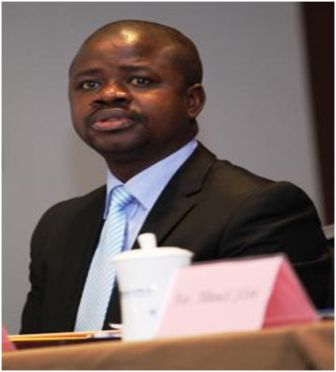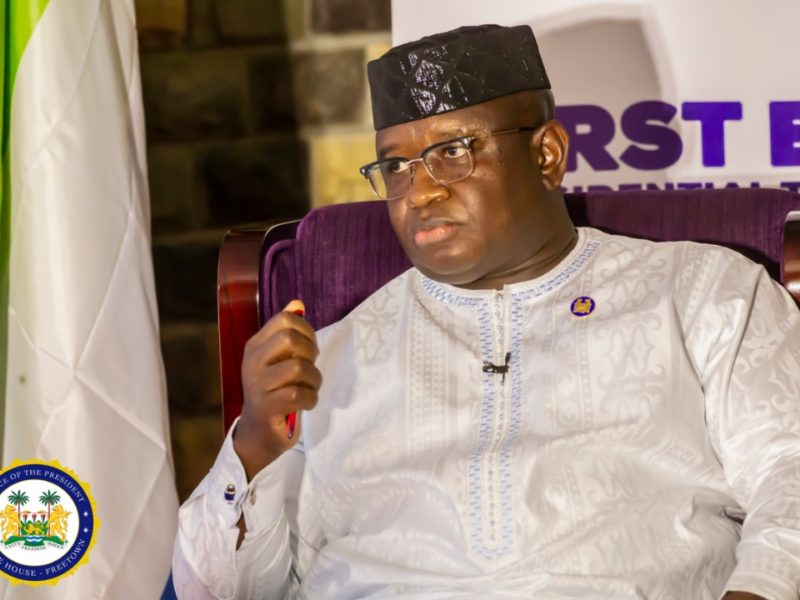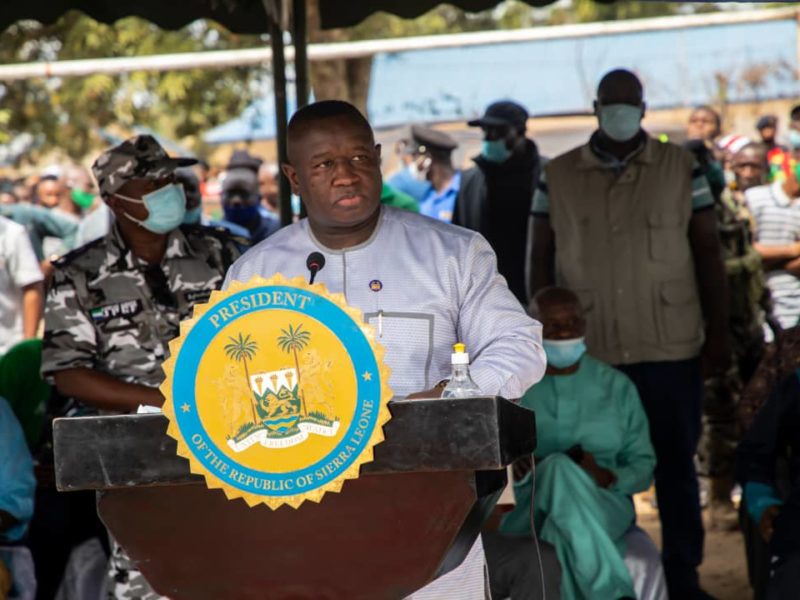The circus of an inspirational Sino-Sierra Leone friendship
China’s strategic position in Africa’s development, especially in the last two decades has been extremely beneficial, especially in strengthening the Sino-Africa relationship and in giving it a new life. Africa’s quest to achieve stable and sustainable development and more investment in the fields of trade, infrastructure and a host of others has taken centre stage in the continents strategic thinking framework and in this vain, China has been a leading player in engaging Africa for trade and investments. (Photo: John Pa Baimba Sesay, IA, China)
There are a number of development cooperation frame that China has been utilizing in her relation with Africa since 1956 when China steadily established diplomatic relations at ambassadorial evils with most countries in the African continent. One of them has been the Forum Of China-Africa Cooperation (FOCAC). This was established as a way of fostering the Sino-Africa relations as well as a way of coping with the challenges brought by economic globalization and to promote common development initiatives. Established in 2000, this is a conference that has used by both China and Africa in expanding the lifting the bars of cooperation ties by putting up new measures that could be used to foster bilateral trade and development. At the first FOCAC Ministerial Conference held in 2000, China vowed to exempt debts from African countries, totaling 10 billion yuan ($1.58billion)… and at the second FOCAC meeting in Ethiopia in 2003, China also announced her commitment to help develop Africa’s human resources as it would increase her financial contribution to Africa by training up to 10,000 African personnel in different fields. (CHINAAFRICA July 2012, Volume 4.) Following the 2006 FOCAC Summit in Beijing and in line with the principle of equality, sincerity and friendship…China and Africa have show their solidarity and trust for each other by working closely in international affairs to safeguard the legitimate rights and interests of developing countries (Wei Jianguo-Africa A Lifetime of Memories… 2012)
The China Africa Development Fund-(CADFund) has also been playing a strategic role in fostering the China Africa ties. It was established in 2006 as one of the eight measures announced by the Government of China, in line with the objectives of the Forum on China-Africa Cooperation. It is an equity investment agency that is different from Chinese government’s direct aid to Africa. The agency has invested about 2.3 billion dollars in Africa with over 30 projects, including their investment in Real Estates in Sierra Leone. It focuses its attention in infrastructural development as well as in the area of transportation, electricity, railway and manufacturing sector. The China Export and Import Bank (Exim-Bank) is also a key player in this drive. It is the world’s third largest export credit agency, with a mandate to implement state policies in industry, foreign trade and economy, finance and foreign affairs. The vast majority of infrastructure financing arrangements done by China in the African continent are reportedly financed by the China Exim Bank. The Bank has financed over 300 projects in Africa, with infrastructure, being the core of its undertakings.
Enhancing peace and development in the African continent has been another priority for its people and leaders. Chinese President, HE Hu Jintao once suggested, “… the international community should continue to give high priority to enhancing peace and development in Africa and increase input in this area especially given the remarkable achievements that have been scored by African countries and people in promoting the continent’s peace and development.” For him, China will remain unchanged in its commitment to supporting Africa’s peace, stability, development and unity and China will continue to stand firm with the African people and forever be a good friend, good partner and good bother of the African people (Hu Jintao Fifth FOCAC Address, 19th July 2012). It was at this Fifth Ministerial Meeting of FOCAC that he highlighted five points’ action plan for cooperation between China and Africa in opening up new prospects in building a new type of China-Africa strategic partnership. They include; opening up new prospects for the new type of China-Africa strategic partnership, in terms of working towards strengthening the political mutual trust between China and Africa; working towards expanding practical cooperation between China and Africa , increasing cultural and people-to-people exchanges ,increasing coordination and cooperation in international affairs and working towards making FOCAC more stronger.
The need for both China and Africa to work towards redoubling efforts to draw up a blueprint for promoting cooperation and lay a solid foundation for making new and greater progress in growing China-Africa relations in the years ahead cannot be overemphasized. This is truly so given that China is the world’s largest developing nation with Africa being the home to the largest number of developing nations. Factually, both China and Africa have joined hands to fight the international financial crisis and made steady progress in building a framework of all-round cooperation. And despite the world financial crisis, the African economy still is said to be in good position (ChinaDaily February 22-28th, page 4). China’s trade, with and investment in Africa have been expanding over the years. As of 2011 alone, “two-way trade reached 166.3 billion US dollars, three times the figure in 2006.” Cumulative Chinese direct investment in Africa, exceeded 15 billion US dollars, with investments projects covering 50 countries. (Hu Jintao 2012). Given China’s development cooperation model from the framework of aid, investment and trade in Africa and primarily focused on equality and mutual benefit, we cannot overstate why Africa should effectively and judiciously engage this rising tiger. There also, are practical lessons we could learn from their growth. The need for strong economic transformation with poverty reduction, concentrating in building our infrastructure, science, technology and innovation, economic diversification, industrialisation, responding to opportunities and challenges of globalisation, amongst others should be taken into account (Franklyn Lisk University of Warwick, 2013).
At the country level, Sierra Le0ne has been making steady progress in moving along with some of these lessons as could be seen in her infrastructural development and in her desire to meet rising opportunities with corresponding challenges. The country continues to enjoy signs of restored confidence as seen in the resumption of Air France and KLM flights to Freetown and with progress ongoing for the reopening of Cape Sierra Hotel by 2014 (The African Report 2012).
Both China and Sierra Leone have continued to strengthen tier ties since 1971. China, no doubt has continued to support Sierra Leone in terms of completing a number of projects, such as stations for popularizing rice-cultivation techniques, bridges, roads, National Stadium, sugar complex, office buildings, hydropower station and power transmission amongst others. At present Chinese supported projects in Sierra Leone, include, but not limited to; the Regent-Grafton road; the million dollar new airport project on the mainland; Rice and robber project; Charlotte hydro dam project. By January of 2012, Sierra Leone signed a $1.2 billion land investment project with China Hainan Rubber Group for the development of a 35,000 hectare rubber plantation and the cultivation of rice on a 100,000 hectare farm. (CHINAAFRICA- March 2012) We also saw the role that Huawei Technologies Co. Ltd, (a Chinese multinational networking and telecommunications equipment and services company) is playing in implementing the e-government and National Optical Transmission backbone project in Sierra Leone. In the air transport sector, the government also signeda million dollar agreement with the China Railway International Consortium for the construction of a brand new airport in the mainland of Mamamah in the outskirts of the country’s capital, Freetown.
By 2012, there was a 25% shares bought by Shandong Steel Company in one of the country’s iron ore mines which is at the moment operated by African Minerals This is a manifestation of significant growth that has taken place in business cooperation between Sierra Leone and China (Abubakarr Multi-Kamara, outgoing Ambassador, February 2012) Other investments include the China Friendship Teaching and Referral Hospital and the new Foreign Affairs Ministry building which were all commissioned in 2012.
The present administration in Sierra Leone has shown the highest level of political commitment in moving the country to the apex of socio-economic development. The country continues to reform her tax environment, with the introduction of an Automated System in the operations of Customs and Excise Department, there continues to be reforms in the business sector with a one-stop-shop now for the registration of a business that takes you less than 48 hour when all documentations are presented correctly, there also continues to be an impressive role that SLIAPA is playing in promoting and attracting private sector investment in the country. The readiness of Sierra Leone in terms of encouraging trade and investment should be utilized by potential and trustworthy investors who will be interested in areas like agriculture, tourism, fisheries and infrastructure. To this end, the Chinese are always welcome.
Stay with Sierra Express Media, for your trusted place in news!
© 2013, https:. All rights reserved.






